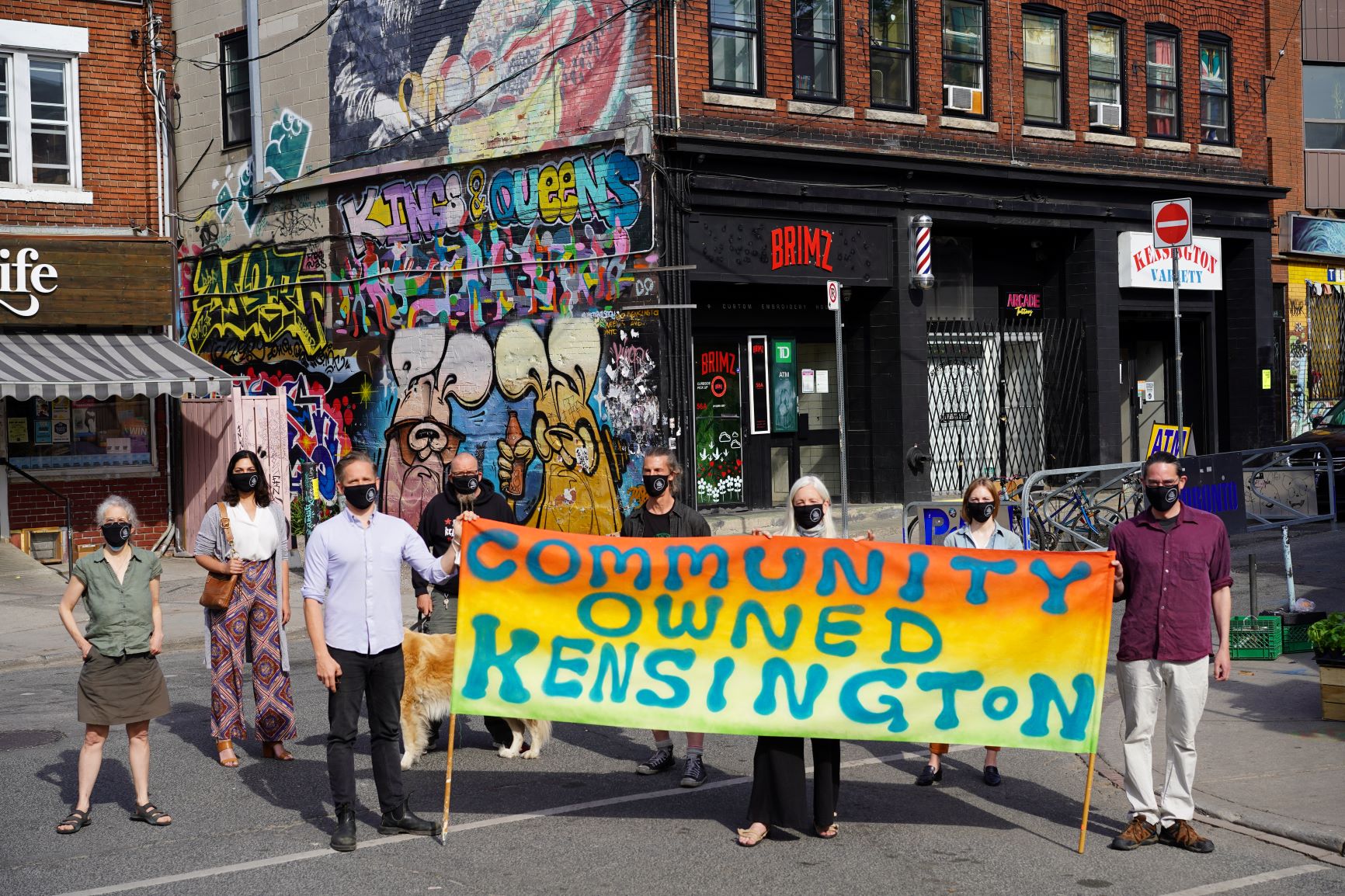 As Toronto’s housing crisis intensifies, many tenants face rent increases and evictions that displace them from their homes and communities. This dire situation calls for alternative solutions – an issue several Geography & Planning students have turned their attention to. The Affordable Housing Challenge Project (AHCP) at the U of T School of Cities brings together students as well as researchers from across the university who are researching the housing crisis and affordability – many of whom, through their work, have supported community initiatives and successful alternative housing solutions in Toronto.
As Toronto’s housing crisis intensifies, many tenants face rent increases and evictions that displace them from their homes and communities. This dire situation calls for alternative solutions – an issue several Geography & Planning students have turned their attention to. The Affordable Housing Challenge Project (AHCP) at the U of T School of Cities brings together students as well as researchers from across the university who are researching the housing crisis and affordability – many of whom, through their work, have supported community initiatives and successful alternative housing solutions in Toronto.
One of these alternatives is the Community Land Trust (CLT) model. Over the last ten years, the CLT model has attracted considerable attention, as it foregrounds principles of permanent affordability, community democratic control, and development without displacement. In Toronto, between 2017 and 2021, the Parkdale Neighbourhood Land Trust, the city’s first neighbourhood-based CLT, successfully preserved a community-owned agriculture site and two at-risk rooming houses with over fifty units. Since its inception, there has been a growing movement among Toronto community members and organizers to implement similar initiatives. It is within this momentum that the AHCP’s CLT Team, coordinated by PhD Planning student Kuni Kamizaki, works to support emerging Community Land Trusts in the city. Under the supervision of Professors Susannah Bunce and Alan Walks, our CLT Team has been working with the Kensington Market CLT, the Friends of Chinatown Toronto’s CLT Initiative, and the Toronto CLT Network.
Kensington Market CLT was established in 2017 in response to rapid gentrification and the more recent increase of short-term rental units. In 2019, the landlord of 54-56 Kensington Avenue – an iconic building in the neighbourhood – attempted to “renovict” his tenants. The building residents, KMCLT, and community advocates fought back together, successfully acquiring and preserving the building with the support of an acquisition grant of $3 million received from the city in May 2021. Our CLT Team has supported this community-led preservation effort. Sinead Petrasek (PhD Geography Candidate) has led website and communications development, as well as a fundraising campaign currently underway. Chiyi Tam (MScPl 2019-21) spearheaded the planning and financing of acquisition from feasibility analysis to its closing. We continue to support KMCLT in building its strong organizational base for future projects, including an RFP response to the City to redevelop a nearby parking lot into more community-owned affordable housing.
In the adjacent neighbourhood of downtown Chinatown, our team has collaborated with the Friends of Chinatown Toronto (FOCT), a grassroots group fighting for community-controlled housing and racial justice. In 2020, we partnered with the UofT Planning program, and commissioned a research project to a group of students in the PLA1106H Workshop in Planning Practice course. The group – including Chiyi Tam – released a research report that offered strategies for combatting displacement pressures including a CLT for Chinatown. Building on this report, our CLT team and FOCT have recently launched a one-year community-based action research project titled “Who Owns Chinatown? Mapping Ownership and Precarity to Mobilize a Community Land Trust” with the support of the SSHRC-funded Balanced Supply of Housing Node project at the University of British Columbia. Our participatory research aims to identify existing affordable housing stock that is vulnerable to speculation, upscaling and eviction threats, as well as to develop community-led strategies for housing preservation.
These CLT initiatives, from Kensington Market and Chinatown to Parkdale and most recently – Little Jamaica, are making up the growing CLT movement in Toronto. A common challenge for start-up CLTs is the need for resources and technical expertise required for housing acquisition, preservation, and stewardship. To this end, our CLT team has been assisting the development of the Toronto Community Land Trust Network, currently housed in the Parkdale Neighbourhood Land Trust, to foster collaboration and support between established and emerging CLTs. In particular, we are conducting action-oriented research – led by Laura Vaz-Jones (PhD Geography Candidate) – to explore a networked approach support system. The networked approach is inspired by existing Community Land Trust initiatives in the Bay Area, New York City, and Boston. This approach is sometimes called the “central server” model that involves centralizing some CLT functions within the network to achieve greater economies of scale and relieve some of the technical and financial burdens from individual neighbourhood-led organizations. A central server approach enables CLTs, particularly those just starting out, to focus more of their resources and energy on community organizing and democratic management.
In face of worsening housing security and the financialization of housing – where housing is treated as a commodity rather than social good – the Community Land Trust model has garnered support from housing movements, community-based planners, and housing policy makers who understand it as an indispensable strategy for a just recovery. Our overall aim of this community-university partnership is to support the flourishing of a strong CLT movement and thereby broader struggles for community-led affordable housing and equitable development in the city and beyond.
Written by: Chiyi Tam, Kuni Kamizaki, Laura Vaz-Jones, and Sinead Petrasek


